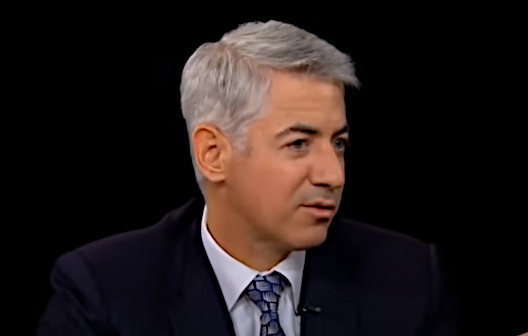Image Source: Energepic.com (Pexels)
When Insiders Reduce Shares in their Company, is it a Red Flag?
Years ago, I was recruited into an “insider” position as the Chief Investment Officer at a top publicly held Wall Street firm. As part of the negotiation, I was awarded warrants and stock that would vest over a few years. Within months of joining my equity stake became my household’s largest asset – worth even more than the market value of our home. This company also made contributions for retirement, the employee got to select if these company contributions went into one of various diverse mutual funds or into a fund consisting only of the company stock. I chose not to further expose myself to the company from which I was also relying on a paycheck because it already represented a large portion of my net worth. At a quarterly Investment Steering Committee meeting, I was questioned about my “lack of confidence” in the organization.
As the CIO I thought it odd that I was entrusted with almost $7 billion in client assets, but the wisdom of how I steered my own needed to be explained. This was still a new position for me so I hid my confusion. I replied to the question using the most basic fundamentals of long-term prudent investing; this included diversification, too many eggs in one basket, allocation, and so on. I don’t know for sure, but I believe I convinced some of the company veterans in the board room that day to rethink their own positions.
While my experience is not the same as say, the AMC Chairman who is selling a portion of his company shares, or Elon Musk taking $5 billion off the Tesla table, it is important to note that at the time I was extremely bullish on the company. I just didn’t think it prudent, especially as an investment professional, to be overly exposed or dependent on any one company’s success.
Insiders have lives outside of their public company roles that they also need to make decisions for. There are many reasons for insiders to lessen their holdings.
Why Do Insiders Sell?
On Tuesday (November 9) Adam Aron
the chief executive of AMC Entertainment Holdings Inc., filed to sell 1.25 million (approximately $53 million worth) of his shares in the company. The 67-year-old Mr. Aron owns at least 2 million more shares in AMC, the stock is trading near $40 per share. Earlier this month, Elon Musk made arrangements to sell approximately $5 billion worth of Tesla shares. This created a stir and rumors until news spread that the car company CEO was facing a $15 billion tax bill on exercised options awarded in 2012. While outsiders looking in may be quick to presume the officers knew something negative, there are far more reasons unrelated to the company’s prospects for an individual’s actions.
Company officers and directors don’t generally buy shares in the open market but instead, receive them as part of their compensation. Compensation that seeks to drive performance and perhaps prevent them from job-hopping via a vesting period (golden handcuffs). Their reasons for selling shares may simply be to raise money to pay their personal living expenses, or to turn valuable assets into something more tangible, like an upgraded home.
So the trick is, when you see insiders selling, how can you gauge if you should be concerned or not? As with everything else in the markets, there is no exact science behind this evaluation, but some guidelines can, over time, place probabilities on your side. Some of these are outlined below.
Which Selling May be a Red Flag?
These are signs that could alert that the insider trading may be worrisome and constitute cause for concern.
- Significant selling is likely to be done quietly, without media announcement, (Transactions should be available on Edgar filings).
- The number of shares sold as well as their value is quite large (percentage of total holdings).
- Insiders sell their stock after a major decline in the stock’s price. This may mean that they don’t think their stock is ever going back up.
- The insider has a previous history of selling near the price peak.
- Many company insiders are selling at the same time.
- Should the overall amount of insider trading across the market rise, it may indicate that the broader market is top-heavy.
Which Selling May be Business-as-Usual?
What cases of insider trading most likely fall into the category of, unrelated to company financial expectations?
- When only one insider is seen selling, it probably lacks insignificance as it may just reflect personal financial maneuvering.
- Expiration dates for options provide a scheduled calendar event that likely has no relationship to stock expectations.
- Automatic sales based on a trading plan are viewed as insignificant. A 10b5-1 plan establishes a sales schedule far in advance. The advanced timing helps prevent any inside knowledge prior to the liquidation. The plans are used to generate regular cash flow for the insider.
- When the selling is done slowly, over a long-time frame.
- When the insider has no prior history of selling near the peak of the stock’s price.
- When the insider has other interests that they may be investing in.
- Large tax bills created a need to free up funds.
Take-Away
When corporate insiders are selling their stock, it often has nothing to do with their expectations of future performance. While the stock performance may at first suffer while investors scurry to the sidelines to figure it out, these dips aren’t necessarily permanent. They may even represent buying opportunities.
Applying the criteria above to analyze the reason for selling, could help before you make a decision on the news. Within Channelchek’s Company Data pages there is a Recent
News section. Visit this section if you are making a decision on one of the over 6,000 small and microcap companies available on this platform.
Managing Editor, Channelchek
Suggested Reading:
 The Last Time Inflation Was This High Fed Funds Were 14.5%
|
 Tickets and Concessions Using Your Cryptocurrency Wallet at AMC Theaters
|
 Bill Ackman is Hedging Against Higher Rates and Inflation, Here’s Why
|
 Chevron Collaborating on Three Green Energy Categories (Sept. 9)
|
Sources:
Stay up to date. Follow us:

|
